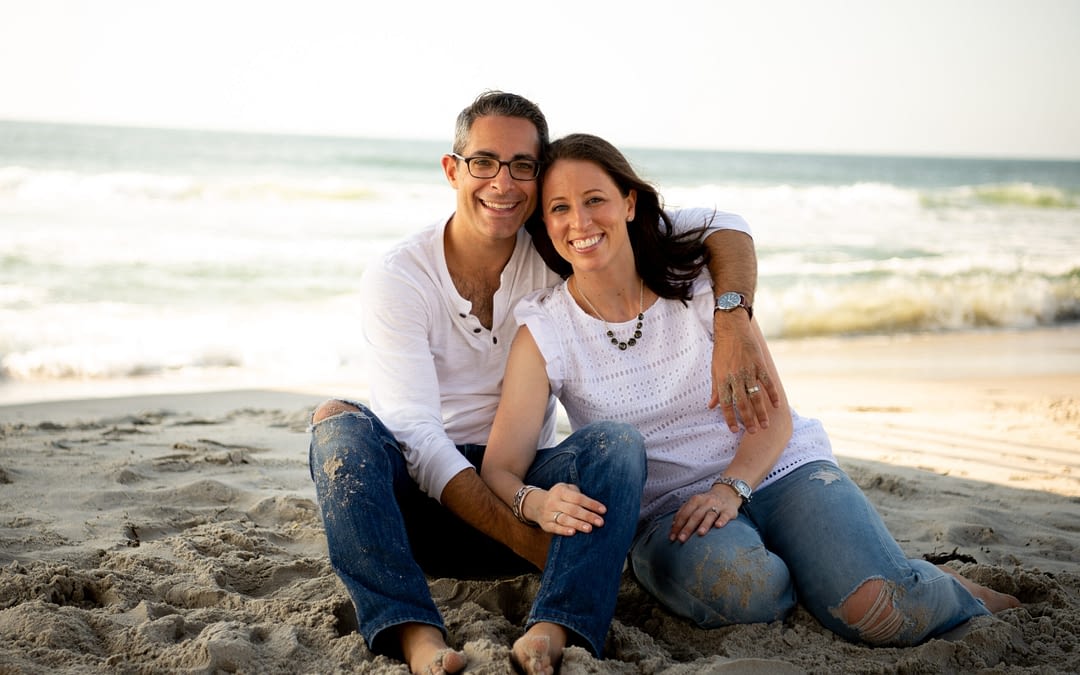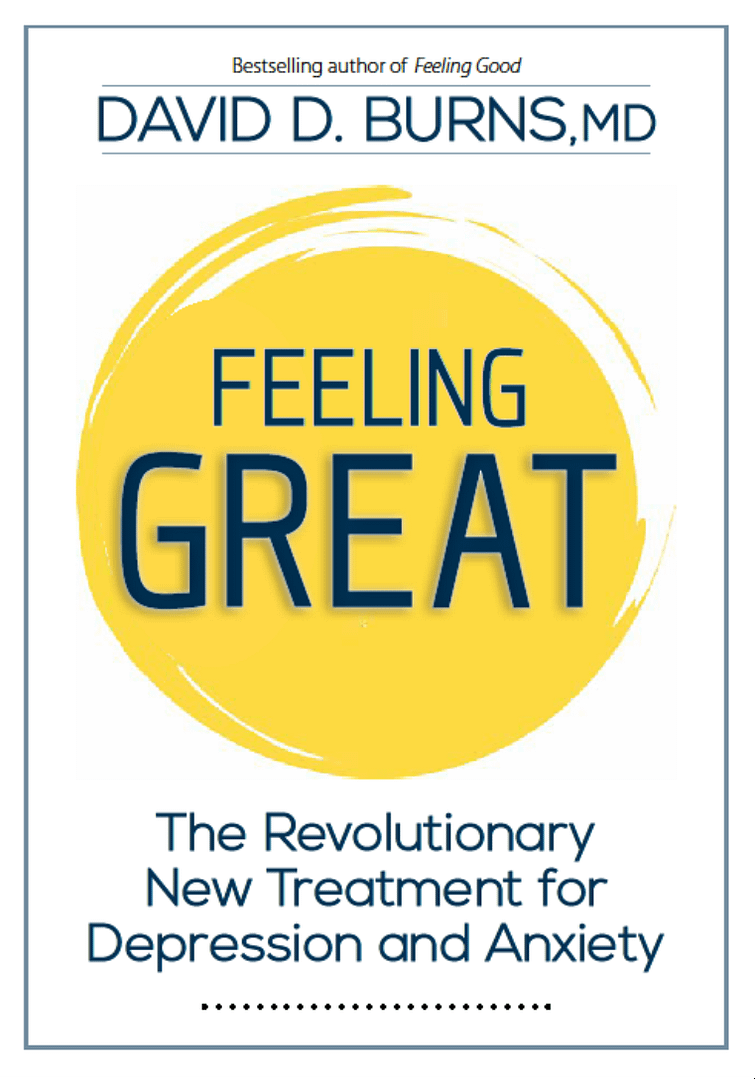- All negative feelings result from thoughts, and not from what’s actually happening. So even in a crisis that is as real and devastating as the Covid-19 pandemic, all of our emotions will still result from the way we think about it. Remember the teachings of Epictetus 2,000 years ago, when he wrote: “People are disturbed, not by things, but by the views we take of them.”
- Healthy negative feelings result from valid negative thoughts, and do not have to be “treated.” Unhealthy negative feelings, in contrast, result from negative thoughts that are distorted and illogical. David reminds us that even in a crisis, depression and anxiety are still the world’s oldest cons, and that you CAN change the way you feel.
| Negative Thoughts | % Now |
| 1. I shouldn’t have to do this alone. | 90 |
| 2. I can’t handle parenting alone. | 70 |
| 3. I shouldn’t burden Gregg with my feelings. | 70 |
| 4. I shouldn’t share my feelings. | 50 |
| 5. I should be strong and tough. | 80 |
| 6. I’ll let my patients down if I don’t have enough time for them. | 50 |
| 7. I’ll lose Gregg. | 50 – 100 |
| 8. I shouldn’t have to do this. | 100 |
| 9. I should be able to work and support my family while Gregg stays at home safely. | 50 |
- What does this negative thought or feeling show about Taylor that’s positive and awesome?
- What are some benefits, or advantages, of this negative thought or feeling?
“It’s okay to share my feelings. It could bring us closer together. It’s human to be struggling, given the circumstances. My feelings matter to Gregg.”
She believes this Positive Thought 100%, and her belief in the Negative Thought fell to 5%, which was enough, since there was a little truth in the thought. You might have to be thoughtful about the timing of self-disclosure. Rhonda and David continue to challenge the rest of Taylor’s Negative Thoughts, using a variety of techniques such as the Externalization of Voices, Acceptance Paradox, Paradoxical Double Standard Technique, and more. The most challenging Negative Thought was #7—her fear that Gregg might die. At the end of the session Taylor recorded a substantial reduction in her negative feelings. Thanks for tuning in, and please let us know what you thought about today’s program! Rhonda, Taylor, and David Taylor Chesney, PsyD is Director of Treatment and Training, Feeling Good Institute-NYC, If you like our jingle music and would like to support the composer Brett Van Donsel, you may download it here.* * *
IMPORTANT ANNOUNCEMENT
FREE TEAM THERAPY FOR HEALTHCARE WORKERS
Health care workers face incredibly challenging times, having to fight a potentially fatal epidemic without adequate supplies or protection. The TEAM therapy community is now offering free TEAM-CBT treatment for 100 health care workers in Bay Area, California counties. For more information, please go to the website: Feelinggood.foundation.* * *
This is the cover of my new book, Feeling Great. It will be released in September of 2020, but you will soon be able to pre-order it on Amazon, possibly by the time you read this!

Need Training or CE Credits?
Check Out these Awesome Upcoming Workshops!
The Cognitive Distortion Starter Kit: How to Crush Negative Thoughts
With Drs. David Burns and Jill Levitt
May 17, 2020 | 7 CE hours. $135 (online only)
TEAM-CBT includes more than 100 powerful techniques to change the distorted thoughts that trigger negative emotions. But what techniques should I select for my patient who feels depressed, anxious, or angry? As you know, in my book, Feeling Good, I listed the ten most common cognitive distortions, like All-or-Nothing Thinking, Should Statements, Emotional Reasoning, and more, and you probably use that list all the time in your clinical work. But do you know which techniques work the best for each distortion? Come to this workshop and find out! You’ll learn with tons of cool techniques you can use every day to boost your clinical effectiveness. This workshop will be live-streamed (and in person in Palo Alto, CA) so you can join from anywhere in the world! There will be many expert online helpers to assist you with the small-group exercises. Move rapidly if you want to come. We are already SOLD OUT in person, but there are still slots available online. There will be many helpers from the Feeling Good Institute to assist and guide you in the small group exercises in person and online as well. Our last workshop on resistance in February was our most highly rated ever! We hope to make this a terrific and fun learning experience for you, too!Learn More & Register
* * *
2-Day Clinical Master Class
Rapid Recovery from Anxiety Disorders– GAD, Phobias, Panic Attacks, Social Anxiety, OCD, PTSD and Health Anxiety
by David D. Burns, MD
June 4 – 5, 2020, Seattle, Washington
* * *
The All-New Annual South San Francisco Intensive!
Enhanced Empathy Training
August 10 – 13, 2020
It’s Going to Be Awesome!
Videos, Live Demonstrations
Small Group Practice with
Personal Feedback and Mentoring,
and Chances for Personal Work and Healing
During this four-day intensive workshop you will learn:- How to develop deeper and more meaningful relationships with challenging, difficult clients.
- How to deal skillfully with people who refuse to open up and talk to you; won’t listen; are relentlessly critical, narcissistic or controlling; always have to be right; use, abuse, or exploit you; complain endlessly; are hostile, threatening or violent; as well as clients who are overwhelmed, hopeless and suicidal.
- How to develop more loving relationships with the people you care about—as well as the ones you don’t.
- Powerful new techniques to help clients who are struggling with conflicts with loved ones, friends, or colleagues.
- How to deal with the inner chatter and powerful feelings that make it so difficult to deal with conflict when you feel angry or hurt.
- How to identify and modify the self-defeating beliefs that make us vulnerable to conflicts with others.
- How to identify and melt away the intense outcome and process resistance that make the treatment of relationship problems so challenging.



